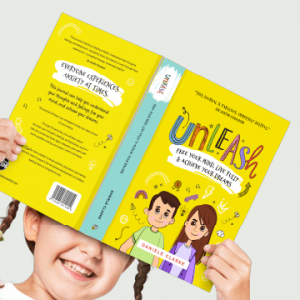
As the third week of school rolls around, many parents wonder how to engage their children in meaningful conversations about their day at school. Some children are more naturally talkative, while others may need some encouragement. Asking the right questions is critical to encouraging communication. It also helps create an environment in which children can feel comfortable. So, how to get your child talking about school? This article explores strategies to help your child settle back into school and provides tips for asking questions to spark conversations.
How to get your child talking about school?
Ask open-ended, more complex questions
When you ask closed-ended questions, one-word responses are common.
- Ask, “What did you do best at school today?”
Asking your child about their feelings, thoughts, and experiences will allow them to express themselves.
Start with a Factual Observation
Children are often more willing to answer questions if they relate them to their everyday experiences. To provide context and relevance, start with a factual statement.
- You can say something like, “I’m sure you have more students in your class than last year.” How is that?
This helps your child connect to the topic by allowing them to share their perspective.
Share Your Experiences
By sharing your own experiences, you can encourage your children to share theirs.
- You might say, “We always play dodgeball during recess.” What are your favourite activities with your friends?
Share a memory about your schooldays or an insight into your past to create a sense of camaraderie with your child.
Avoid Negative Questions
Do not ask your child negative questions. They may put them on the defensive.
- Try a positive approach, such as “I heard you sat at the table with new people today.” What were you talking about?
This will allow your child to voice their concerns without feeling judged.
Here are some alternative questions to get your child talking about school:
- Try “What was the best thing you did at school today?” Instead of “Was school fun today?” try “What did you do best at school?”
- You can replace “How was your lunch?” with “Which kids were sitting near you at lunch?” Replace “How was lunch?” with “Which children were sitting nearby you at lunch?”
- Replace “Was the teacher nice?” with “What was the most interesting thing your teacher said today?” Swap “Was your teacher nice?” for “What was most interesting that your teacher said today?”
- Change “Did you get your locker today?” Change “How did you find it getting to your locker between classes?”
- Ask, “Who was the most friendly kid in your class?” Ask, “Who was the person you liked talking to most?”
- Transform “Did you get your schedule?” You can also say, “You have your schedule today?” What days are the busiest?
- Replace “Do you know anyone in your class?” with “Who are the kids you talk to most often?” Replace “Do you have friends in your class?” with “Who is the kid that you most talk to in your class?”
- Ask, “What part of your presentation was best?” Ask, “What was the best part of your presentation?”
Remember
Don’t forget that not all questions will lead to a long conversation. Over time, the goal is to have many small, meaningful conversations. You can chat at natural times, such as during dinner or driving, if you are not in a rush. Respecting the boundaries of children and adults who don’t want to talk is essential. If you think something urgent or severe is happening, ask specific, direct questions to get answers.
To summarize, fostering open communication with your children is essential to help them settle back into school. Asking open-ended, factual questions and sharing personal experiences will encourage your child’s openness and allow them to share their feelings and thoughts about school. Your child will be able to navigate school challenges more confidently if you build a foundation of open communication and trust.
If you’re looking for a tool to support your child and help them conquer anxiety and overcome fear, the Unleash journal may be just what you need. Designed with science-based strategies, Unleash provides practical tools to manage anxiety and create a personalized plan for success.

Learn more about Unleash here.
Want to see what is inside Unleash?
Download a FREE chapter here.
Related Articles
Back to School | Superpower Kids
Supporting Your Child with ADHD: Insights into Their Unique Brain Structure
The Power of Journaling for Kids with Anxiety
How to Give Your Child with Dyslexia their Best Chance of Success




